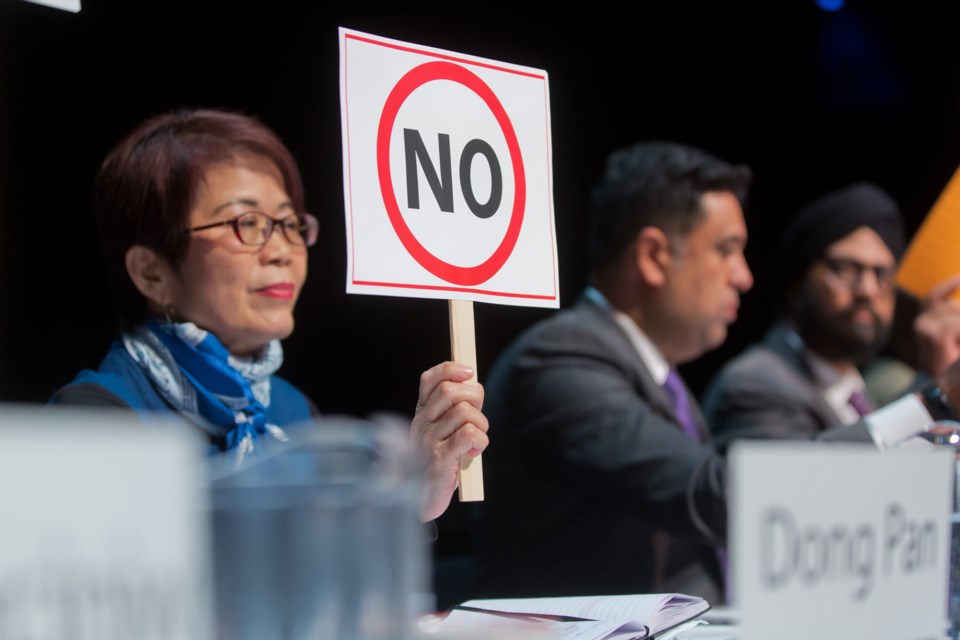With the final count for the provincial election complete and showing no party with a majority, separate negotiations between BC Green Party leader Andrew Weaver and the two major political parties — the BC Liberals and BC NDP — are set to begin in earnest.
Premier Christy Clark said in a statement to media on Wednesday that it is her responsibility to move forward and form government.
But Weaver said, “The premier has a responsibility to ensure that she gains the confidence of the house to form government.
“So, I would suggest that that was a bit premature, because we have not tested the confidence of the house yet; but negotiations are ongoing and that may happen, or it may not happen, depending on the negotiations that we have.”
Weaver has given no indication which party he might support in a minority government.
Electoral reform to include proportional representation and banning big money from political campaigns are among his priorities.
The Greens have three of the 87 seats in Victoria but got nearly 17 per cent of the popular vote.
Should Clark not be able to form a government, she could ask Lt. Gov. Judith Guichon to call another election. Political scientist David Moscrop believes this would be politically unwise for Clark and that Guichon would likely give the NDP and Greens the opportunity to strike a deal to govern.
Should Clark’s Liberals find themselves on the outs, it means Richmond could have four backbenchers, a far cry from last term when Linda Reid was Speaker of the House and Teresa Wat was in charge of two ministries.
Construction of a new hospital tower and the George Massey Tunnel replacement bridge hang in the balance.
In Richmond North Centre, incumbent Wat, who served last term as Minister of International Trade and Minister Responsible for the Asia Pacific Strategy and Multiculturalism, was the only winner to receive more than 50 per cent of the popular vote. She received 52.5 per cent of the votes. The riding had an estimated voter turnout of 45.6 per cent, well below the provincial average of about 60 per cent and expected to be among the lowest in the province.
In Richmond-Queensborough, the final tally showed rookie Liberal Jas Johal winning by 134 votes over Aman Singh of the BC NDP. It was the city’s most closely contested riding, with a 41.4 per cent to 40.8 per cent difference.
In Richmond-Steveston, voter turnout is estimated at 61.6 per cent, above the provincial average. There, incumbent John Yap secured his fourth term with 47.6 per cent of the popular vote, his worse showing of those four elections since 2005.
Meanwhile, incumbent Reid won with 48.9 per cent of the popular vote in Richmond South Centre, against Coun. Chak Au. It was the first time since 1991 that support for the long-time MLA dipped below 50 per cent.
Support for the Green Party in Richmond ranged from 10.5 per cent to 13.1 per cent.
With files from the Times Colonist



